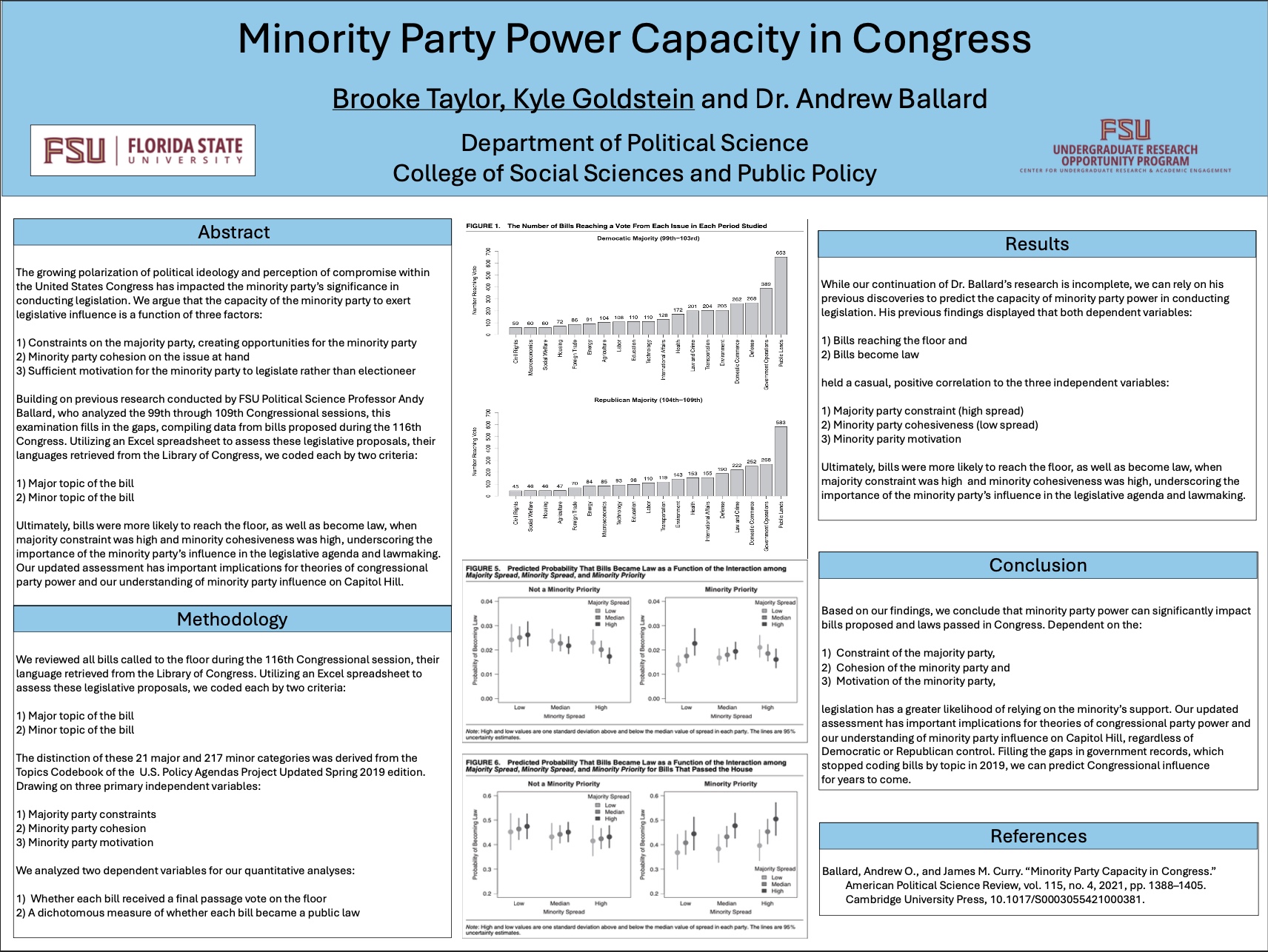Research Symposium
25th annual Undergraduate Research Symposium, April 1, 2025
Kyle Goldstein Poster Session 3: 1:45 pm - 2:45 pm / Poster #278

BIO
Originally from Voorhees, New Jersey, I am now a freshman seeking a dual degree at Florida State University. My on-campus involvements include Delta Sigma Phi Fraternity, Kappa Alpha Pi Pre-Law Fraternity, Inter-Residence Hall Council, Freshman Leadership Institute, and Executive Leadership Institute. I plan to continue my education through law school and have career aspirations in the government and criminal justice. In my free time, I love working with children, working out, playing cards, and socializing.
Minority Party Power Capacity in Congress
Authors: Kyle Goldstein, Andrew BallardStudent Major: Political Science and Criminology
Mentor: Andrew Ballard
Mentor's Department: Department of Political Science Mentor's College: College of Social Sciences and Public Policy Co-Presenters: Brooke Taylor
Abstract
The growing polarization of political ideology and perception of compromise within the United States Congress has impacted the minority party’s significance in conducting legislation. We argue that the capacity of the minority party to exert legislative influence is a function of three factors:
1) Constraints on the majority party, creating opportunities for the minority party
2) Minority party cohesion on the issue at hand
3) Sufficient motivation for the minority party to legislate rather than electioneer
Building on previous research conducted by FSU Political Science Professor Andy Ballard, who analyzed the 99th through 109th Congressional sessions, this examination fills in the gaps, compiling data from bills proposed during the 116th Congress. Utilizing an Excel spreadsheet to assess these legislative proposals, their languages retrieved from the Library of Congress, we coded each by two criteria:
1) Major topic of the bill
2) Minor topic of the bill
Ultimately, bills were more likely to reach the floor, as well as become law, when majority constraint was high and minority cohesiveness was high, underscoring the importance of the minority party’s influence in the legislative agenda and lawmaking. Our updated assessment has important implications for theories of congressional party power and our understanding of minority party influence on Capitol Hill.
Keywords: politics, congress, legislation, laws, bills

